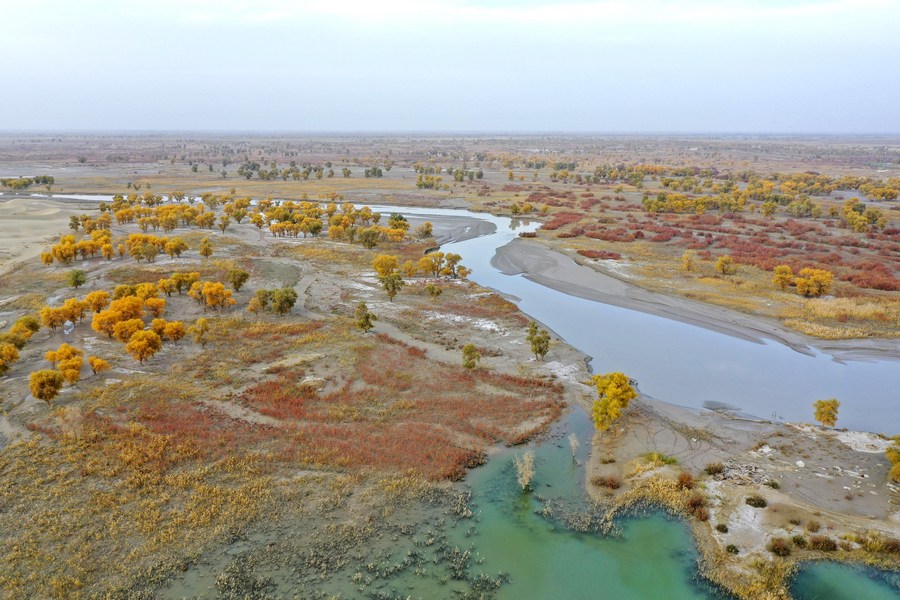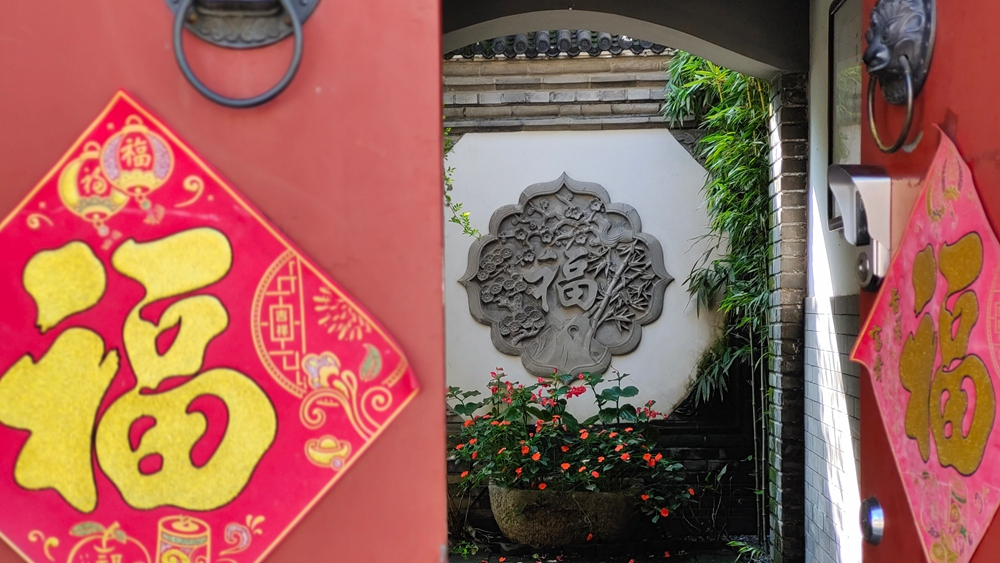
Aerial photo taken on Oct. 21, 2021 shows the scenery of populus euphratica forest in the lower reaches of the Tarim River, northwest China's Xinjiang Uygur Autonomous Region. (Xinhua/Zhao Ge)
URUMQI, March 23 (Xinhua) -- Northwest China's Xinjiang Uygur Autonomous Region has managed to save 6.82 million mu (about 454,667 hectares) of populus euphratica forest from degradation, thanks to a three-year restoration project.
Covering an area of nearly 17 million mu, the populus euphratica forest along the Tarim River, China's longest inland river, is the largest natural forest containing this plant species.
Though highly tolerant to drought, swathes of populus euphratica trees had died since the 1950s due to overexploitation of water resources along the Tarim River, causing the river to dry up and decline in water levels.
In 2019, Xinjiang launched a three-year project to revive the dying forest. With an investment of 124 million yuan (about 19.5 million U.S. dollars), the project aimed to enhance the forest's self-repair capacity by building flood diversion facilities to irrigate the degrading populus euphratica trees.
Ilham Burhan, head of a forest management and protection station located in the lower reaches of the Tarim River in Yuli County, noted that he and his colleagues dug ditches to link the segregated water bodies, thus expanding the volume for the water reservoir and discharging more water into the forest interiors.
He added that they had also built a diversion canal stretching over 10 km from the Tarim River to let the water flow into its old course, which was in a dry state for ages.
Thanks to the restoration project, the forest areas irrigated by flood diversion channels saw the average height of populus euphratica trees grow by 0.4 to 0.7 meters over the past three years, with the number of seedlings increasing by some 14.27 million, according to data from Xinjiang's public welfare forest protection center.
"The trees had gone 30 to 50 years without being watered. But most of them have sprouted and have been brought back to life," said Enwaer Keram, 59, a local herder.
A rise in water areas has attracted an increasing number of migratory birds such as black storks and egrets to the area. "Two years ago, six swans were spotted here, and the number increased to 16 last year. Hopefully, more will come this April," said Ilham Burhan.
Apart from ecological benefits, the restoration project has also boosted local tourism.
"During the peak tourist season, dozens of buses pass by the road in front of my house every day, and many people come to see the populus euphratica forest," said Rozitan Sidiq, owner of a homestay in Yuli County. In February alone, he raked in 80,000 yuan from his homestay business.
"I'm so proud to see that the sky in my hometown has become bluer, the water more lucid, and the forest more beautiful," he said. ■












